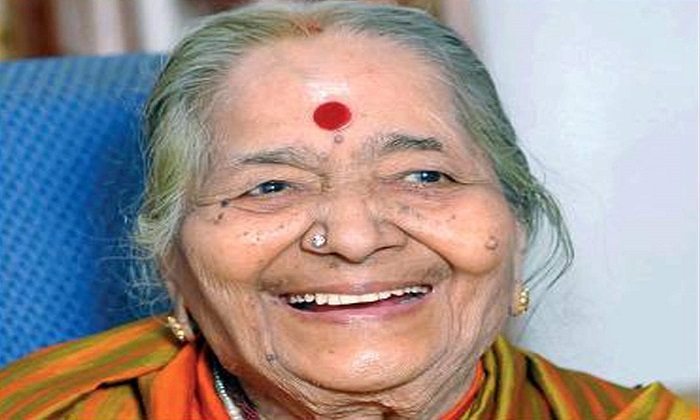
As India asserted her independence at midnight on August 15th, 1947, it was Padma Vibhushan Damal Krishnaswamy Pattammal’s majestic voice on All India Radio that echoed the sentiment of millions of thumping hearts as she sung Bharatiyar’s prophetic words, “We shall sing and dance joyfully, for we have achieved Independence!”. D K Pattammal, who made up the female trinity of Carnatic music along with MS Subbulakshmi and M L Vasanthakumari, was one of the finest musicians of our nation.
D.K Pattammal, born “Alamelu”, on 19th March, 1919 in Kancheepuram, was lovingly called “Patta”
at home as she was the only daughter of the house. Her mother, Kanthamani, had knowledge of
music but never performed in public. Her father, Krishnaswamy Dikshithar, loved music but nursed
no musical ambitions for his prodigious daughter. He would lovingly teach a 3-year-old Pattammal
numerous shlokas, shlokas that would ultimately make their way into her concerts for decades. Her
brothers, DK Ranganathan, DK Nagarajan and DK Jayaraman were all interested and trained in music.
DK Jayaraman, specially, who accompanied her in numerous concerts, went on to become a stellar
musician of high repute.
Concerts of majesty
DKP’s music was known for its strict adherence to tradition. Endowed with a powerful voice, DKP’s open throated singing was unique, as much for her choice of compositions and imaginative explorations as for her rhythmic prowess. She earned the moniker “Pallavi Pattammal” for her mastery over singing Raga-Tana-Pallavis; something that was considered male bastion and too complicated for women of her time to attempt. She did this with little effort - no histrionics while keeping talam, no overt gestures to indicate the intricacy of the Pallavis that she presented, in many rare talams too. Her love for her motherland expressed itself in her concerts with each performance including at least one patriotic song. It is indeed surprising that she achieved such high scholarship in music without ever undergoing formal, initial training in swaras. When she actually started taking lessons, she directly began from kritis!
She amassed a vast repertoire of Mutthuswamy Dikshitar compositions which she owed to her gurus Ambi Dikshitar and Justice T L Venkatarama Iyer, both of whom were from Mutthuswamy
Dikshithar’s Shishya Parampara. Each of her concerts was meticulously planned to ensure variety in tempo, language, composer, compositional form and, of course, raga. The “thematic concert” - a
rage today, was a trend she started, decades ago.
Her music was immensely adored and accolades poured in. She was decorated with some of the
highest honors - Padma Vibhushan, Padma Bhushan, President’s Award, Sangeetha Kalanidhi and
Kalidas Samman amongst others. A commemorative postage stamp featuring her was released by the President of India in 2014.
Battling patriarchy
The magic that is DKP’s music almost never came to be, thanks to patriarchal practices prevalent in
her time. When DKP, as a precocious 10-year-old, sang at her school for the first time in public, it
was received with much adulation and covered by the local newspaper. The press report along with
the published photo horrified her father, who thought that this “exposure” of his daughter would
doom her to ignominy and spinsterhood, since singing in public, that too by Brahmin women, was
not tolerated. He had decided against her singing anymore but timely intervention from her school
headmistress and a few others, convinced him of his wrong notions. He not only relented but
became her strongest supporter from that day on. She got married at the “ripe, old age” of 21, when
child marriage was the societal norm, to Iswaran Iyer, who quit his job to devote himself to her
prospering career.
She, along with MSS and MLV, was one of the first women to perform in public at a time when male
musicians refused to accompany female vocalists’ concerts. Palghat Mani Iyer, the legendary
mridangam player, was averse to accompanying women musicians but he made an exception for
DKP. He declared that her music was just the sort that was most suitable to his style of
accompaniment and that he enjoyed playing for her!
Pattammal – offstage
She was so dedicated to her art form, that not once did she cancel a concert. She would sing to a
vegetable vendor with the same honesty as to a learned audience at the Madras Music Academy.
She enjoyed many genres of music and listened to them all with equal fervor. Despite her
spectacular success, she remained humble throughout her life. She greeted everyone with a warm
smile full of the same sunshine that her music was made of. Her life, as her voice on August 15th
1947, echoed her love of God, her nation and fellow beings, “We shall sing and dance joyfully, for we
have achieved Independence! It is now sure that we are all equal; We are slaves to no one, but the
Complete-One”!

